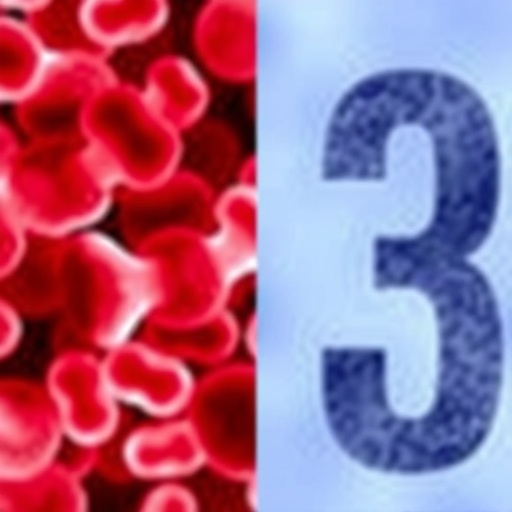The tumor suppressor gene p53 has long been heralded as the “guardian of the genome,” a crucial protector that preserves genomic integrity by halting mutations which could escalate into malignancy. Its pivotal role in safeguarding cellular DNA and orchestrating repair mechanisms has cemented its status at the forefront of cancer research. However, a notable paradox emerges in the oncogenic landscape: mutations in p53, found in roughly half of all human cancers, can transmute this guardian into a molecular instigator of cancer progression. Such mutations impair p53’s tumor-suppressive functions and enable unchecked cellular proliferation, yet until recently, the nuances of specific p53 mutant variants and their implications for therapy remained elusive.
Groundbreaking research conducted by a team at Baylor College of Medicine has begun to unravel these mysteries, revealing how particular p53 mutant forms rewire the cancer cell replication machinery itself. Their study, published in the prestigious journal Communications Biology, provides compelling evidence that certain p53 mutants, notably R273H and R175H, differentially manipulate DNA replication initiation, profoundly influencing tumor behavior and immune system interactions. These insights illuminate new horizons for leveraging p53 mutations as biomarkers to inform and optimize cancer treatments.
Dr. Weei-Chin Lin, the principal investigator and a distinguished professor of molecular and cellular biology as well as medicine at Baylor’s Dan L Duncan Comprehensive Cancer Center, drove the investigation by focusing on the mechanistic impact of two prevalent p53 mutants. Through meticulous experimental work on cultured cancer cell lines, the team dissected how R273H and R175H influence the complex, multi-step process of DNA replication—a critical precursor to cancer cell proliferation. Their observations revealed a stark contrast in how these mutants alter replication dynamics and subsequent biological responses.
The R273H mutation emerged as a potent driver of replication overactivation, leading to excessive and uncontrolled DNA synthesis. This hyperactive replication initiation promotes aggressive tumor growth, yet intriguingly, it also provokes an innate immune reaction. This paradoxical effect arises from activation of the cGAS-STING pathway, a sophisticated surveillance mechanism within cells that detects aberrant DNA structures and signals immune system engagement. As a result, R273H tumors elicit a robust immune infiltration, particularly involving CD8+ cytotoxic T cells, which are critical effectors in antitumor immunity.
In contrast, the R175H mutation, while still conferring oncogenic advantages by promoting cancer cell proliferation, fails to activate the cGAS-STING pathway. Consequently, tumors harboring this mutation do not stimulate the same vigorous immune response, suggesting this variant effectively evades immune detection. This dichotomy underscores how individual p53 mutations can distinctly reshape not only the tumor cell’s internal biology but also its interplay with the host immune system, thereby influencing tumor progression and response to therapies.
To translate these cellular discoveries into therapeutic potential, the Baylor team employed mouse models of breast cancer implanted with tumors carrying the R273H mutation. They treated these mice with immune checkpoint inhibitors, a transformative class of cancer immunotherapies that has revolutionized cancer care but only benefits a subset of patients. Remarkably, tumors harboring the R273H mutation demonstrated enhanced sensitivity to immune checkpoint blockade, evidenced by increased infiltration of CD8+ T cells and signs of active immune-mediated tumor destruction.
These findings carry profound clinical implications. Immune checkpoint inhibitors, such as anti-PD-1 and anti-CTLA-4 antibodies, unleash the immune system against cancer, but predicting which patients will respond remains a major challenge. The identification of the R273H mutant p53 variant as a natural activator of cGAS-STING signaling and a facilitator of antitumor immunity suggests that detecting this mutation in patient tumors could serve as a powerful biomarker for tailoring immunotherapy strategies, optimizing response rates, and sparing non-responders from unnecessary treatment.
Furthermore, the research provides a compelling rationale for combinatorial therapeutic approaches. By pairing immunotherapy with agents that modulate DNA replication machinery—specifically targeting pathways hijacked by mutant p53—the immune activation observed with R273H mutants may be amplified. Such synergistic regimens could enhance therapeutic efficacy and overcome resistance mechanisms, paving the way for precision oncology grounded in tumor genomic profiling.
The intricate nexus between mutant p53-driven replication dysregulation and immune system engagement unveiled here also illuminates new biological paradigms governing tumor-immune interactions. It raises crucial questions about how cancer cells with different p53 mutations balance proliferative advantage with immune evasion and how these dynamics influence metastatic potential and clinical outcomes.
This pioneering work lays a foundation for future studies to explore the molecular underpinnings of how specific p53 mutations orchestrate replication initiation, genomic stability, and immune checkpoint pathways. It highlights the necessity of characterizing the mutational landscape at high resolution to individualize patient care effectively. Additionally, it points toward the development of novel agents targeting replication initiation factors co-opted by mutant p53, potentially converting “cold” tumors into immunologically “hot” ones that are more amenable to immunotherapy.
Dr. Weei-Chin Lin and colleagues at Baylor College of Medicine, including lead authors Kang Liu, Lidija A. Wilhelms Garan, and Fang-Tsyr Lin, continue to push the frontiers of cancer biology by dissecting these complex molecular circuits. Their findings, supported by significant NIH and Department of Defense grants, represent a beacon of hope for transforming how p53 mutations are perceived—not just as culprits of malignancy but as gateways for precision interventions that harness the body’s own immune defenses.
As cancer treatment enters a new era emphasizing genomics and immunology, the nuanced roles of tumor suppressor gene variants like mutant p53 emerge as critical determinants of therapeutic success. This transformative research beckons the oncology community to adopt mutation-specific frameworks in diagnostics and clinical decision-making, potentially revolutionizing outcomes for countless patients worldwide.
Subject of Research: Animals
Article Title: Mutant p53 variants differentially impact replication initiation and activate cGAS-STING to affect immune checkpoint inhibition.
News Publication Date: 5-Nov-2025
Web References: https://www.nature.com/articles/s42003-025-09050-3
References: DOI: 10.1038/s42003-025-09050-3
Keywords: Health and medicine, Diseases and disorders, Human health




